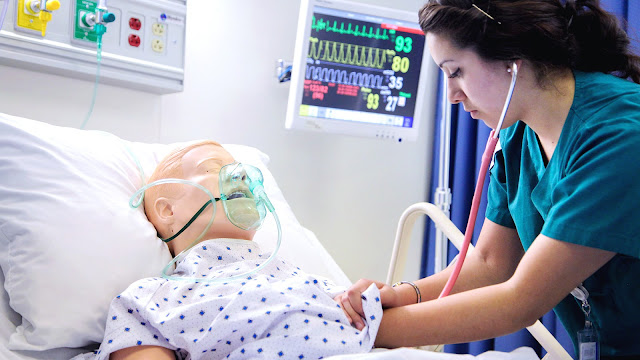Medical Simulation Market: Transforming Healthcare Education and Training
Introduction:
The medical simulation market has
been experiencing significant growth in recent years, revolutionizing
healthcare education and training. With advancements in technology and the
increasing demand for skilled healthcare professionals, medical simulation has
emerged as a crucial tool for enhancing clinical skills and improving patient
outcomes. This report provides an overview of the medical simulation market,
highlighting key trends, drivers, challenges, and opportunities within the
industry.
Market Overview:
The medical
simulation market encompasses a wide range of products and services,
including virtual reality (VR) simulators, task trainers, mannequins, and
simulation software. These tools aim to replicate real-life medical scenarios,
enabling healthcare professionals to practice procedures, develop critical
thinking skills, and gain hands-on experience in a risk-free environment.
Key Market Drivers:
- Rising Demand for Patient Safety: Medical
simulation plays a vital role in improving patient safety by allowing
healthcare professionals to refine their skills and minimize errors during
critical procedures.
- Shortage of Skilled Healthcare Workforce: The
global healthcare industry faces a shortage of skilled professionals.
Medical simulation offers an effective solution by providing a platform
for training and upskilling healthcare personnel.
- Technological Advancements: The integration of
advanced technologies, such as augmented reality (AR) and artificial
intelligence (AI), into medical simulation platforms has further enhanced
their realism and effectiveness, driving market growth.
Market Challenges:
- High Initial Investment: The cost of implementing
medical simulation technology can be a significant barrier, particularly
for smaller healthcare institutions. This limits market penetration and
adoption rates.
- Complex Integration: Integrating medical simulation
systems with existing healthcare infrastructure and curriculum can be
challenging, requiring substantial planning and coordination.
Opportunities:
- Expansion in Developing Regions: The medical
simulation market is witnessing rapid growth in developing regions,
where there is a need to bridge the healthcare skills gap. These regions
present untapped opportunities for market players to expand their presence
and cater to the growing demand.
- Customization and Personalization: The ability to
tailor medical simulation solutions to specific healthcare disciplines and
individual learning needs presents a promising opportunity for market
growth.




Comments
Post a Comment